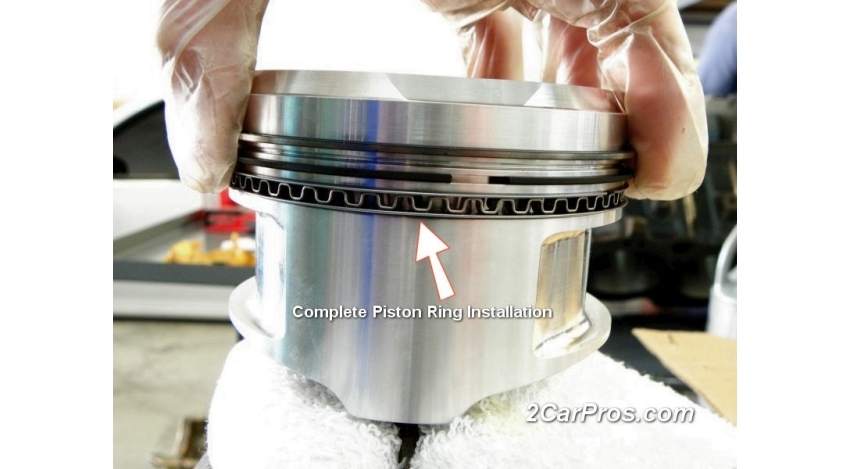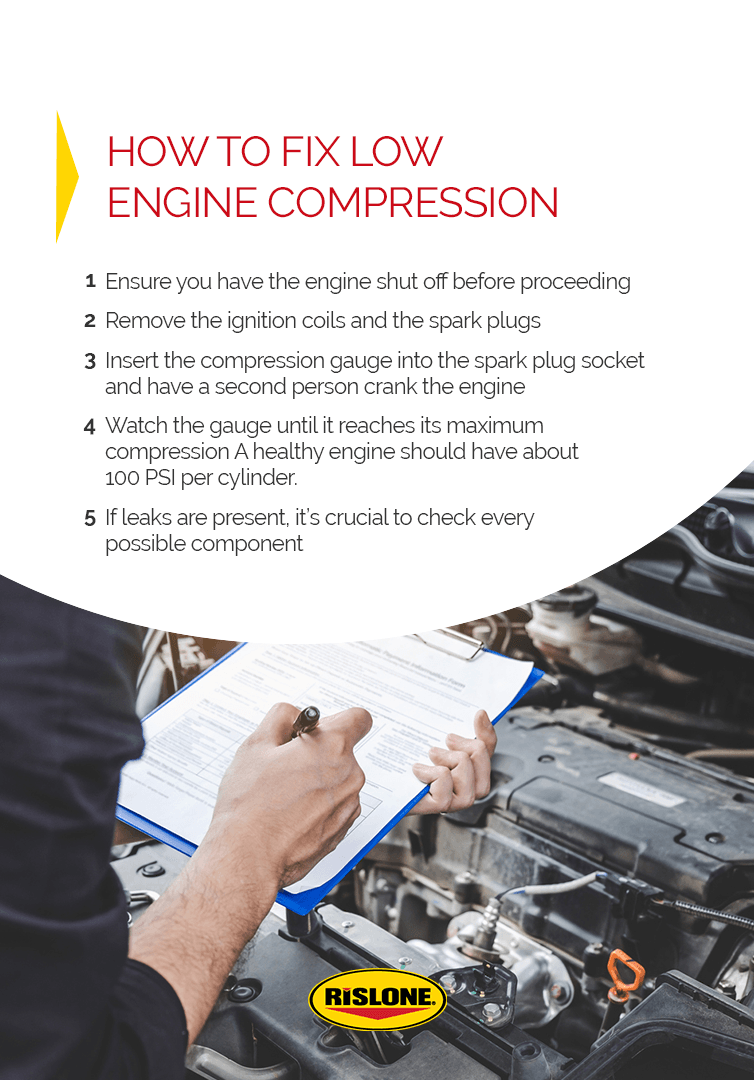
A dropped valve seat damaged valve spring a damaged valve and a dropped valve can all lead to no compression in one cylinder. Worn out or misaligned gasket could also be the reason for poor compression.

Causes of Low Engine Compression.
What causes low compression in a cylinder. The first one is that if your car is running for a while with misfires the fuel might wash the cylinder walls which causes low compression. The second reason is that the piston rings are sealing poorly or were stuck. Causes of Low Engine Compression.
There are several causes you can eliminate if your cylinders are losing compression. One possibility is a blown head gasket. The head gasket connects to the cylinder head at the top of the engine.
If there is a problem youll notice a gap between the cylinder and the head and gas will escape the cylinder leading to low compression. What causes low compression in a cylinder block. Similar to the problem of the cylinder block overheating is also the main culprit when it comes to gasket issues.
Once the gasket gets worn out it could also cause poor compression in the engine. The following are some causes of no compression in one cylinder of your vehicles engine compartment. Dropped valve There are metal valve keepers in the similitude of two pieces of half-moon each that are responsible for holding.
What Causes Loss of Compression in an Engine. Holes in the Piston. Glazed or Splintered Cylinder Walls.
Weakened Timing Belt or Cracked Chain. Damaged Valve Springs Seats and Retainers. What will you do if the compression in one or more cylinder is low.
Along with that a blown head gasket is a cause of low compression too. At the top of the engine the head gasket stays connected to the cylinder head. If your head gasket gets blown youll notice theres a gap between the head and the cylinder cap.
That gap leads to the gas flowing out causing a low compression in one of the cylinders. What causes low compression on all 4 cylinders. If you got 0 PSI compression on all 4 cylinders it sounds like youve got a broken timing belt on your hands.
The next step is to remove the timing cover and check the actual condition of the timing belt. What is common if you have a very high mileage engine is low compression across the board. If low compression is caused by fuel leaking into cylinders it will help to put a little oil in the cylinders.
Before you do this remove the spark plugs and set them out to dry. Once they are dry put in some oil then put them back in place and try to start the engine. There are various reasons why low compression occurs but the main points or parts you could refer to are the pistonpiston rings timing belt valves.
These elements in the engine will help you in your search for the root cause of the problem. Low compression on one cylinder is typically caused by a bad exhaust valve on that cylinder in these engines. A vacuum leak will only cause high idle and backfiring.
How do you start a car with low compression. Check out a few of the common causes of low compression in a cars engine below. You have holes in one or more of the pistons that move through your engines cylinders.
You have leaky intake valves andor exhaust valves at the top of your engines cylinders. No compression in all cylinders is also caused by a broken timing belt or a broken camshaft while low compression in all cylinders can be traced to damaged piston rings. A dropped valve seat damaged valve spring a damaged valve and a dropped valve can all lead to no compression in one cylinder.
Causes of Low Engine Compression. You can fix the problem by removing any causes that cause loss of compression. Blowing the head gasket could be one possible cause.
The head gasket connects to the cylinder head at the top of the engine. If there is a problem youll notice a gap between the cylinder and the head and gas will escape the. Crack in the cylinder will leak the gases to the radiator Gasket Issues.
Worn out or misaligned gasket could also be the reason for poor compression. You can use a pressure tester to pinpoint the trouble in this case. It measures the compression level in the cylinder.
If the readings are different. If the compression is low or zero on two adjacent cylinders. It would indicate a leaking gasket.
There is a weak sealing surface at the head to block mounting area. Which basically means a bad head gasket. There is a broken camshaft in an area that operates valves for two adjacent cylinders.
Low Engine Compression In All Cylinders. What Causes Low Compression. Low compression can stem from any type of internal engine problem that allows the air-fuel mixture to escape from a cylinder or reduces volumetric efficiency.
The most common causes of low compression include. WornDamaged Piston Rings Pistons and Cylinder walls. What causes low compression on outboard motor.
If your compression readings are low or some cylinders low but others high there are a few potential causes. The most common issue is carbon clogging the piston-ring grooves. The carbon residue is the byproduct of the combustion cycle.
No compression in all cylinders is also caused by a broken timing belt or a broken camshaft while low compression in all cylinders can be traced to damaged piston rings. If you find that theres absolutely no compression in one cylinder then theres a variety of other causes. A dropped valve seat damaged valve spring a damaged valve.
The piston rings main purpose is to seal the area between the piston and the cylinder to reduce air loss and increase compression in the cylinder below the piston. Since the piston rings main job is to create compression in a two-stroke engine. Low-compression engines will almost certainly start to misfire owing to the drop in compression ratio but the cylinder may not have died completely.
Variances of 60 Percent and Higher Once youve lost 60 percent or more of the compression in one cylinder its effectively dead or shaking the engine so badly that you cant ignore it.